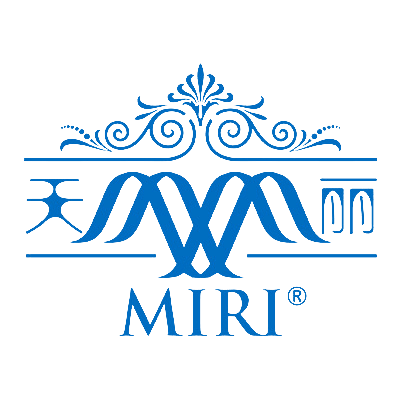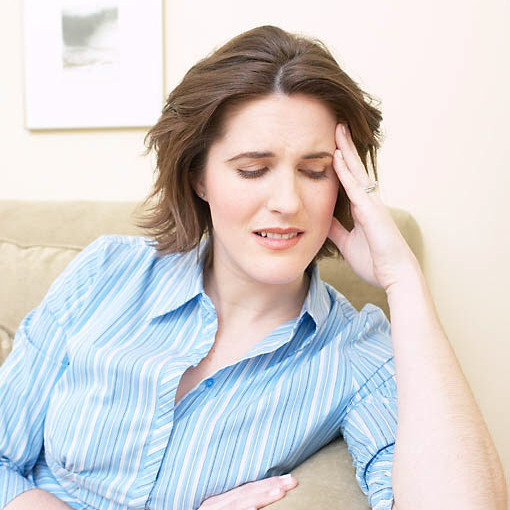
Don't Suffer The Wrath of Hormone Disorder
You probably heard about complaints and how miserable menopause was, mood swings, hot flushes, insomnia, vaginal dryness and etc. It might seem funny to be so positive about it. The truth is women can truly enjoy menopause once you know how to navigate through it.
Menopause is Not a disease that needs curing. It is just a natural stage of life that all women will go through at around 45 years old, for 10 to 15 years. It is also important to realize that menopause is not something new and it has been around us for a long time. Women often feel confused about just what this important passage will do to their lives and how they should approach it. Part of the reason is that no one source (doctor, friend, or scientific study) can tell a woman what her own menopause will be like. Every woman goes through menopause in a unique way.
If you are facing menopause, often you may have a feeling of uncertainty. You may fear the loss of control or feeling “out of sorts”. Having no set expectations makes the anticipation worse. While a minority of women report little or no symptoms of menopause, the usual course is that a woman will begin feeling changes during the perimenopause (peri, meaning “around”), which can last from two to five years leading up to menopause. There is no predicting if your menopause may be long or short, bumpy or smooth. Nor can you foresee the time when you will begin it.

Be Informative
Becoming well informed is not easy. Most women are not getting all the information they need about the menopause process from their doctors as time is at a premium to the professionals. Whenever and however menopausal changes appear, it can be valuable to have information beforehand, and while you’re experiencing menopause. Studies have shown that women who are prepared to take charge of their own health care tend to do best through the menopausal passage. Information about the health concerns of menopause and what lifestyle changes you need to confront in order to address those health issues can function as your survival kit as you negotiate your way through this very important change in your life.
Becoming well informed is not easy. Most women are not getting all the information they need about the menopause process from their doctors as time is at a premium to the professionals. Whenever and however menopausal changes appear, it can be valuable to have information beforehand, and while you’re experiencing menopause. Studies have shown that women who are prepared to take charge of their own health care tend to do best through the menopausal passage. Information about the health concerns of menopause and what lifestyle changes you need to confront in order to address those health issues can function as your survival kit as you negotiate your way through this very important change in your life.
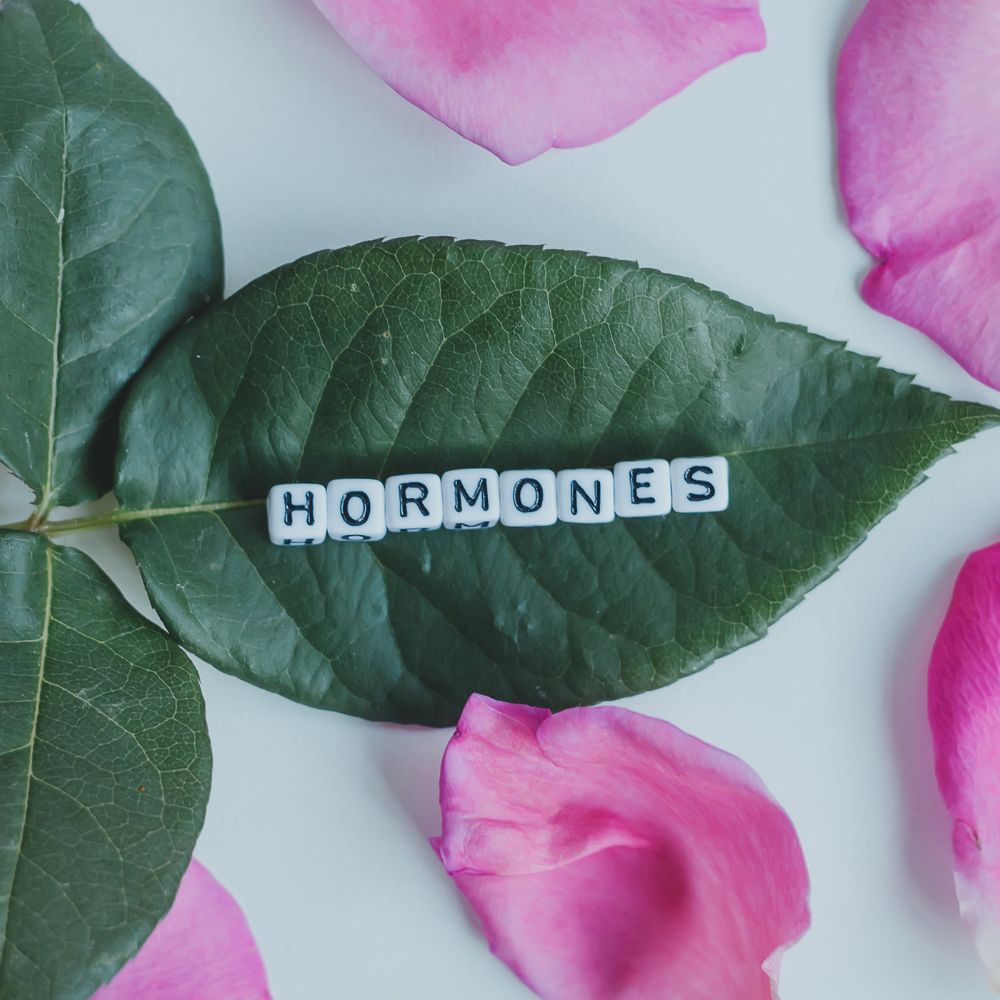
Hormones Definition
Becoming well informed is not easy. Most women are not getting all the information they need about the menopause process from their doctors as time is at a premium to the professionals. Whenever and however menopausal changes appear, it can be valuable to have information beforehand, and while you’re experiencing menopause. Studies have shown that women who are prepared to take charge of their own health care tend to do best through the menopausal passage. Information about the health concerns of menopause and what lifestyle changes you need to confront in order to address those health issues can function as your survival kit as you negotiate your way through this very important change in your life.
Estrogens are natural steroids created in the body. This hormone has been quietly, profoundly affecting your menstrual cycle to your brain, bones, and heart all through your life. It maintains the structure of female genital organs.
During puberty, estrogen causes the growth of the breasts and the milk-producing breast ducts. Once the breasts are developed, estrogen plays a role in maintaining their size and density. When estrogen levels fall during menopause, the breasts may shrink. Estrogen contributes to the health of the skin, is largely made of a protein called collagen. The amount of collagen in the skin is maintained by this hormone and decreases after menopause. It also increases the hydration of the skin, thus contributing to its softness and suppleness.
Estrogen also increases the number of blood vessels in the skin, thus makes the skin feel warmer, and is one of the factors that cause hot flashes. The suppleness of the skin in postmenopausal women decreases with each passing year that estrogen levels are low. This thinning is due in part to decreased amounts of collagen and in part to the decreased water content of the skin. In this way, a decline in estrogen levels can contribute to skin wrinkles.
While medical science has yet to fully understand estrogen’s role in brain chemistry, we know that it affects a number of neurotransmitters that influence mood, memory, and motivation. It also plays a role in the normal function of other neurotransmitters (brain functions and protects against Alzheimer’s disease) that affect mood. Any women find that when their estrogen level goes down, they get depressed. Estrogen has a direct effect on the libido, gives a surge in sexual interest around ovulation when estrogen level is at its peak while a decline in estrogen levels can make a woman less interested in sex.
Because estrogen is often and largely produce in women, as you go through menopause, your body’s estrogen levels change hence the effects can be quite noticeable.
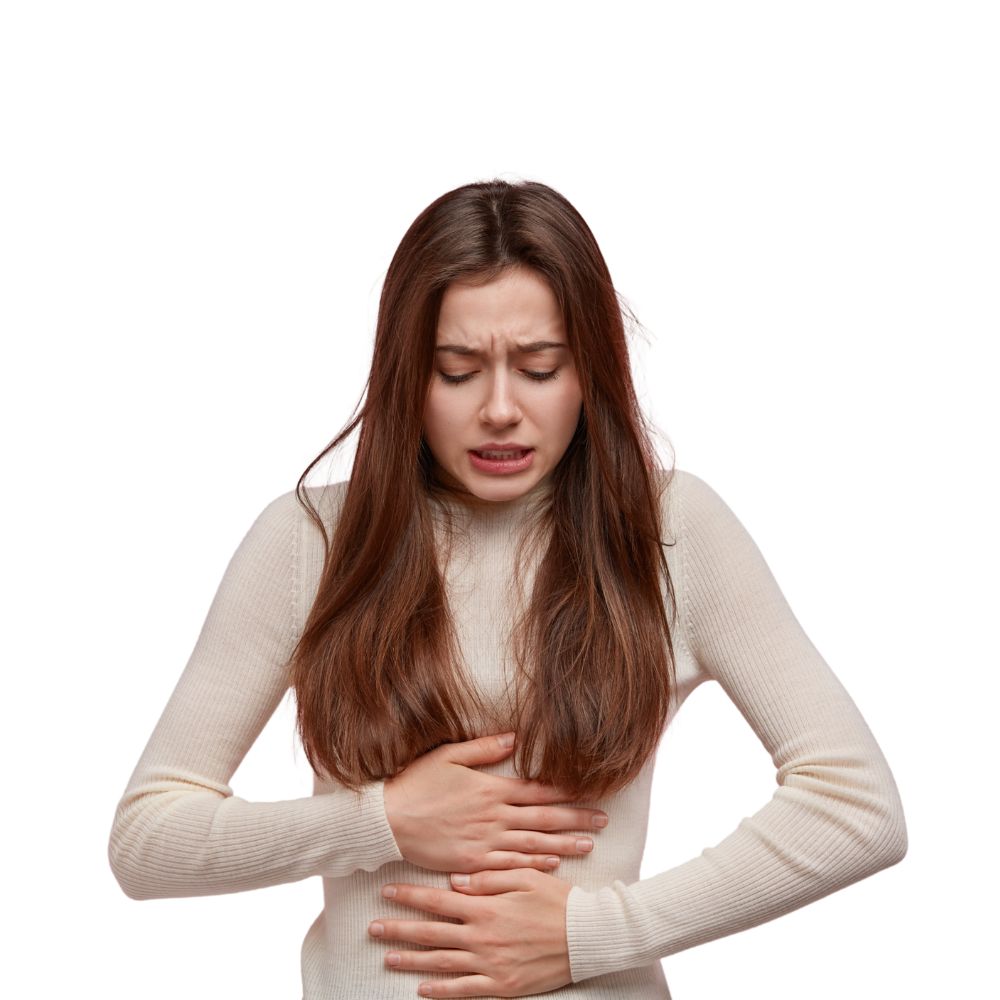
Other Hormones
Together with estrogen, progesterone regulates your menstrual cycle. Estrogen stimulates the uterine lining to grow while progesterone ensures that it sheds in a monthly period. One sign if your progesterone levels are too low during menopause is that you begin to have painful periods. This hormonal increase in your metabolic rate literally warms you up and has an effect on respiration. This is why some women with low progesterone during menopause have cool skin.
Testosterone as we thought the male sex hormones are produced by every woman as well. We need this male hormone for the proper function of the brain, heart, bones, and other tissues. Testosterone is the most important hormone for maintaining sex drive in women, similar in men. Like estrogen, testosterone keeps the genital healthy. Decreased in these hormones can result in dry wrinkled skin. However, too much of it, causes skin oiliness, ache, more hair growth on the face and body.
Menopause can be a time of physical, emotional, and spiritual growth for women. But at the same time, characteristic of hormonal fluctuations can cause troublesome symptoms in the majority of women. Hot flushes are the most common symptoms but many women are also bothered by fatigue, insomnia, depression, vaginal health, urinary problems, abnormal periods, mood swings, breast tenderness, and sexual desire.
Recognize the menopause symptoms:
- Changes in menstrual periods. These are experienced by every woman but they typically begin with more frequent shorter and lighter periods which change to an irregular flow perhaps followed by heavy periods. Usually, periods arrive less and less frequently and gradually diminish, but some women just stop abruptly.
- Hot Flushes & Hot Flashes. The most common yet notorious symptom, hot flashes or flushes are experienced by about 75-80 percent of women; these may happen frequently and leave you drenched, smelled or you may experience only a few mild episodes and that’s it.
- Vaginal changes. These include thinning of the vaginal walls and vulva and lack of lubrication which may make intercourse uncomfortable, or cause discomfort even if you’re not having vaginal sex. The pH balance in your vagina changes, increasing your risk of vaginal infections.
- Incontinence or bladder problems. This often occurs because the urinary tract tissues grow weak and thin, and the surrounding muscles lose bulk and strength. You may have trouble controlling your urine and develop more frequent bladder infections.
- Sleep disturbances. These may be due to hot flashes that occur at night, or to low estrogen affecting the stage of sleep during which dreams occur. This stage, also called REM sleep (rapid eye movement), is believed to be the most restful stage of the sleep cycle.
- Fatigue. This is the number one problem that women complain about. It may have a myriad of contributing causes, and wreak havoc with your personal and professional life.
- Emotional and mental changes. There’s very little scientific information or agreement about why some women get “real nasty at times–snapping at my friends, in a bad mood. Some changes may be due to hormonal effects on your nervous system. And certainly, physical problems such as hot flashes that disturb sleep (night sweats) can leave many women grumpy.
- Loss of sex drive. Lowered hormones may be directly or indirectly related. Lowered libido may be due in part to vaginal atrophy discomfort during intercourse is definitely not an aphrodisiac. Fatigue and emotional difficulties experienced at midlife may also play a part.
Increased risk of serious disease. While these and other symptoms of menopause may affect your quality of life now, heart disease, osteoporosis, breast cancer, and diabetes all increase after menopause. Many of these diseases have subtle or no symptoms until they are quite advanced. However, we often find early signs and can decrease our risks.

Your Protection: Phytoestrogen
There is growing evidence that eating foods rich in phytoestrogens (a natural plant substance can be of significant help in easing the symptoms of menopause. Soy base plants and herbs are high in isoflavones and phytoestrogens. Women in cultures that traditionally eat a lot of soy products, practically every day are Japanese, Chinese, and Asians. They have a much lower incidence of difficult menopausal symptoms. This appears to be, at least in part, because foods rich in phytoestrogens mimic estrogen activity in the body.
Phytoestrogens don’t behave exactly like estrogen, or estrogen replacement, but that can actually be an advantage when you are going through menopause. At that time, your body is adapting to having less estrogen in the system, and there may be a protective effect when you get estrogen-like activity from eating phytoestrogen-rich food, rather than taking full-strength estrogen in hormone replacement. Phytoestrogens bind to the estrogen receptors of cells, but they do not stimulate the cells as much or as strongly as estrogen steroid hormones. But, by binding to the receptor, they accomplish these important tasks.
- First, they “satisfy” the receptor by binding to it. This allows the receptor site to respond by initiating changes within the cell. These changes could include helping to decrease osteoporosis, in the case of bone cells, decreasing hot flash symptoms, in the case of blood vessels. The effect is not nearly as strong as that of a steroid hormone-like estradiol, but sometimes that is better.
- Second, phytoestrogens decrease cancer stimulation by steroid hormones such as estrogens by taking up the receptor space and competing with steroid hormones that would normally bind to the hormone receptors. When phytoestrogens block steroid estrogens from binding to the receptor, they are said to be antagonists, meaning they work against the steroid hormones.
- Thirdly, this effect could prevent strong stimulation of cancer cells in the breast or uterus. With less stimulation from steroid estrogens, cancer cells will grow much slower and may be more susceptible to control by the immune system.
- Additionally, research reports that some phytoestrogens, such as genistein and daidzein found in soy and Pueraria Mirifica, actually suppress tumour growth even in tumours that are not influenced by hormonal activity. Research is discovering that phytoestrogens are inhibitors of breast, uterine, bowel, and prostate cancers.
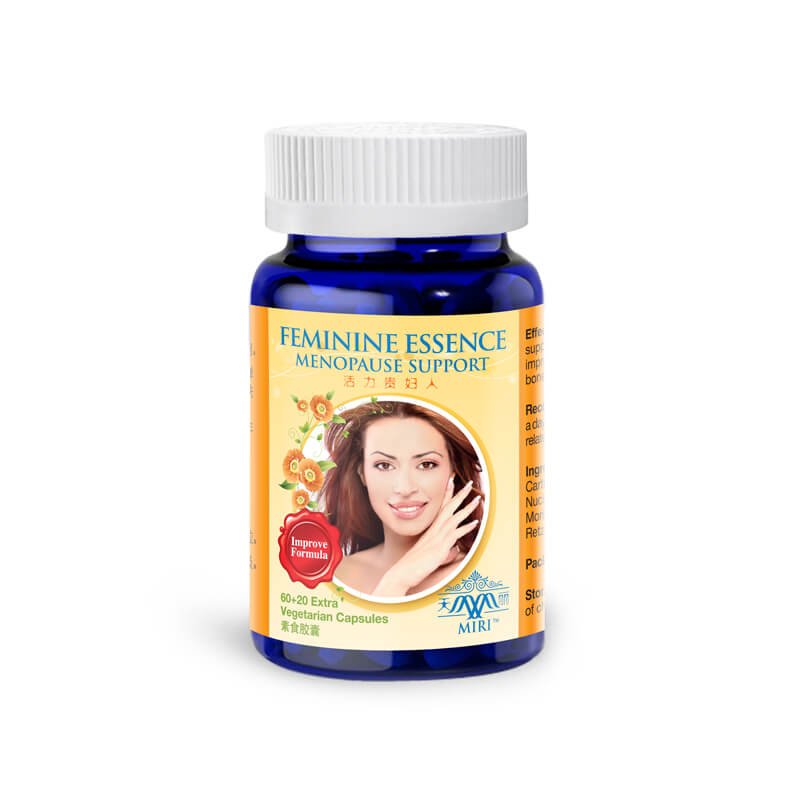
Miri Beauty
Miri Feminine Essence
Miri Feminine Essence let you get by menopause smoothly as it contains concentrated soy, isoflavones, and phytoestrogens. The high soy has the ability to help prevent postmenopausal bone loss and osteoporosis, protect the cardiovascular system by decreasing high cholesterol levels. The supplement rich in phytoestrogens also will decrease some of the symptoms and many of the risks associated with menopause.
Long term benefits include; improving brain and neuron functions, thus protect women against Alzheimer’s disease, improve libido, and maintain youthful-looking skin.
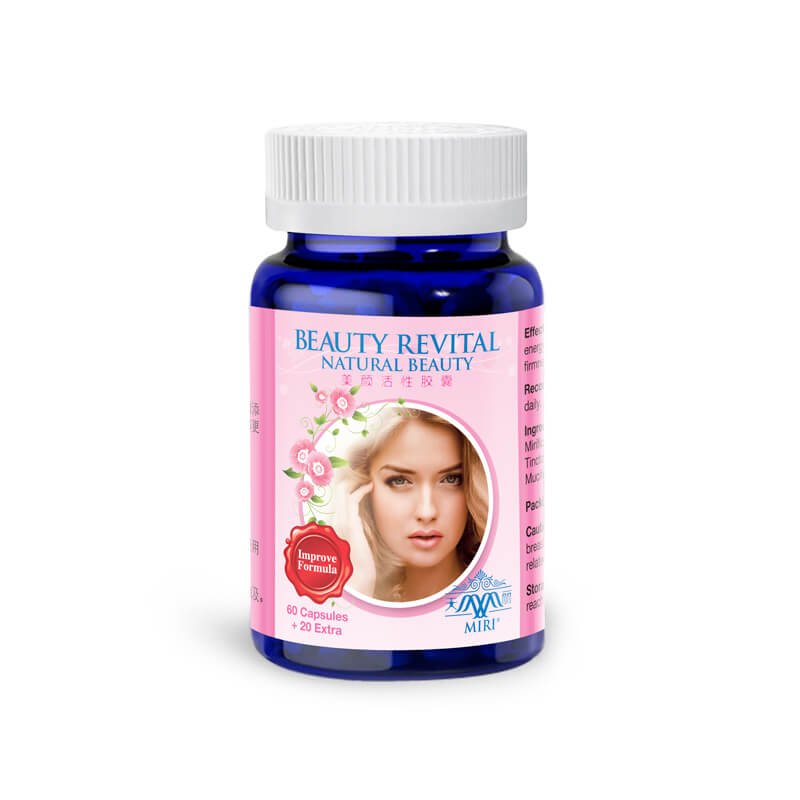
Miri Beauty
Miri Beauty Revital
Miri Beauty Revital for beast health and wellness. This supplement also promises to enhance breast efficiently, maintaining their fullness, size, and increasing breast density. It retains and increases the hydration of the skin, keeping the breast soft and supple. To assist breast development, Beauty Revital can be used together with other Miri breast enhancement products.
“I was taking estrogen for menopause, and seven months later but I went off the hormones. Now my hot flashes have started again, but I’m still scared to death to take the hormones. I want to know if there are other ways that I can do.”
-
Prevention is your Survival Kit!
Since menopause is going to happen anyway, why not take steps to negotiate the symptoms and navigate menopause smoothly? During this transitional time, menopause can be your opportunity to regenerate yourself. In fact, menopause and the years beyond are frequently the best years of a women’s life.
-
ERT / HRT
Replacing estrogen becomes more important because of the extended number of years without it. However, most women are uncomfortable about taking estrogen replacement therapy for the rest of their lives as they’re worried about the side effects, cancer. Like decisions in other situations, decisions in medicine are based on evaluating the benefits and risks, the “pros and cons”. If we take prevention steps, starting right now, we will be in better to discuss decision based on “real” benefits and risks.
-
Myth of Estrogen
By the late 1970s, estrogen became one of the top 5 prescription drugs. Women taking estrogen found that they have fewer hot flushes, moods were better, their breasts are firmer, no vaginal problems, and are more energetic. However, soon studies showed that taking estrogen in high doses and for a longer period could increase the risk of endometrial cancer. Its popularity plummeted and this subject has led most women believing that estrogen caused cancer. However, the effects vary from woman to woman.
Fortunately, scientific findings of estrogenic substances found in beans, herbs, fruits are able to replace forms of hormone therapy and allow them to avoid hormone therapy completely. -
Don't Risks Beyond Menopause: Osteoporosis
Osteoporosis is more common and more serious than most people believe. It is the most serious health problems that women face as they get older as their bone loss is greater than men. The sad truth is osteoporosis may have no obvious symptoms until fractures of the spine, hip, or wrist occur. Fracture due to this condition causes immeasurable pain and suffering.
Over the years, the effects of multiple vertebral fractures accumulate and result in curvature of the spine, a stooped posture or hump, and loss of height. Some women experience great pain, especially when the nerves exiting the spine are compressed. Despite treatment, most fractures (hips, vertebral fractures in older women) lead to an inability to live independently. As mature women continue to grow bone, but more slowly. Eventually, the balance shifts as the osteoclasts (bone loss) catch up to and surpass the osteoblasts. Bone breakdown exceeds formation, and bone becomes less dense and can become more brittle. Generally, around our early forties, women begin to lose bone mass.
This gradual bone loss seems to be a normal part of aging, but not a disaster. If we grow properly dense bones during our early years or before menopause, the bones stay strong enough to support us for the rest of our lives.
